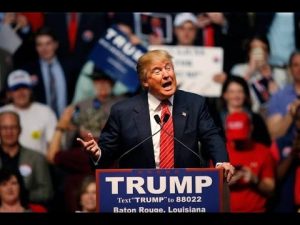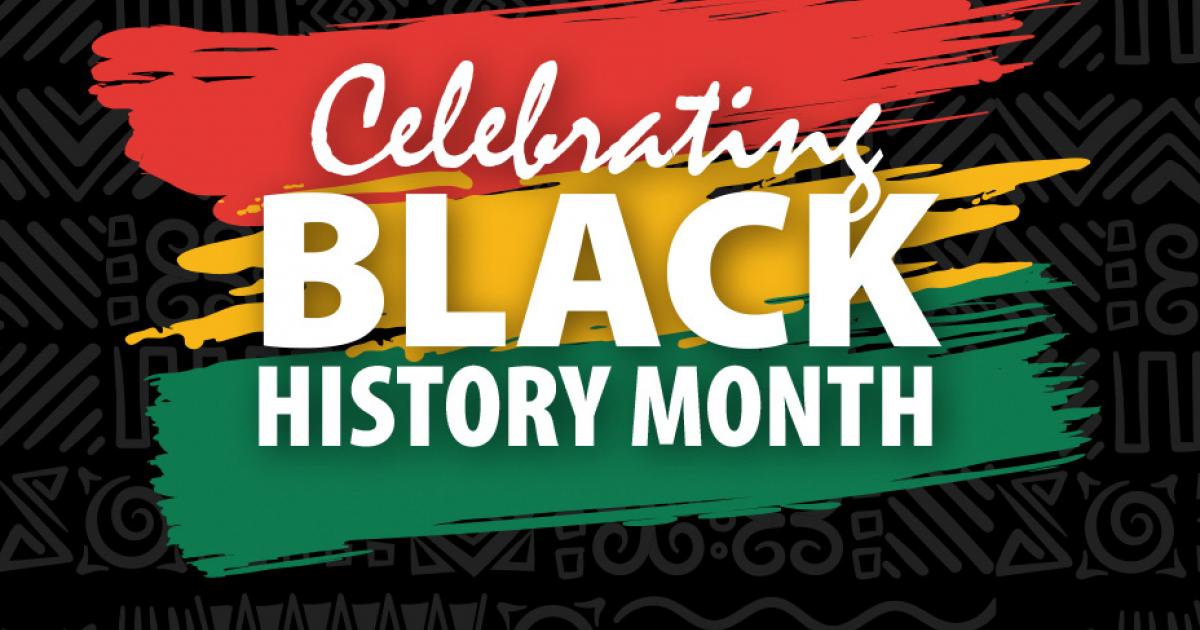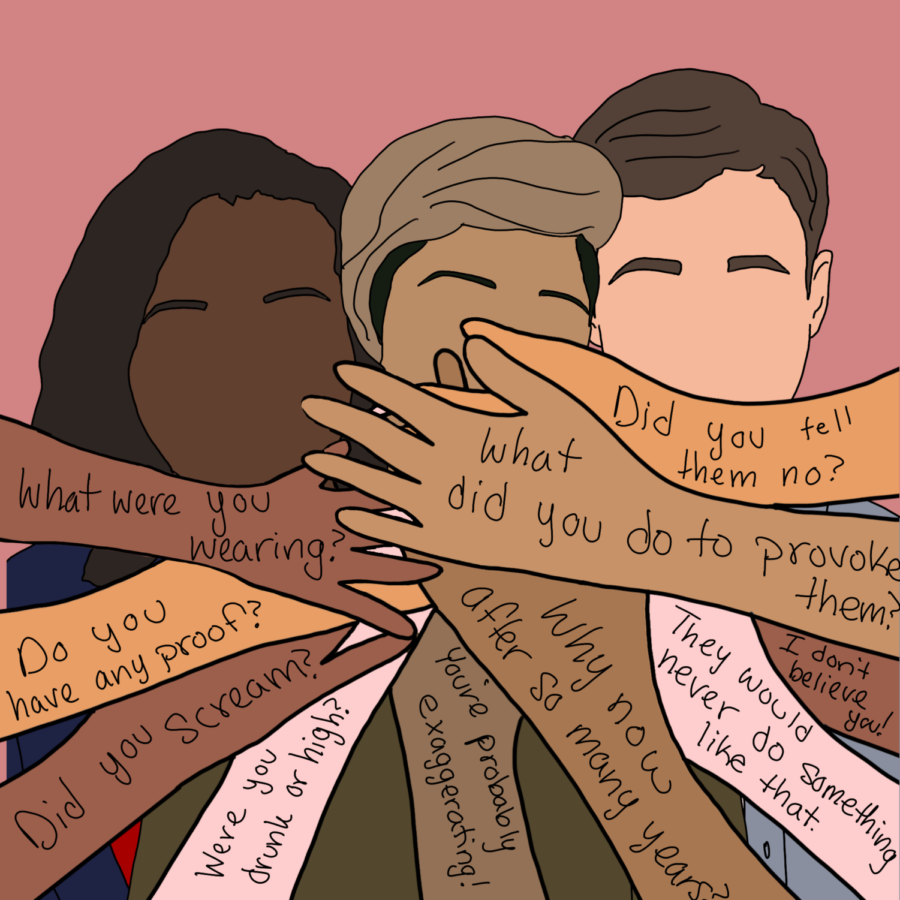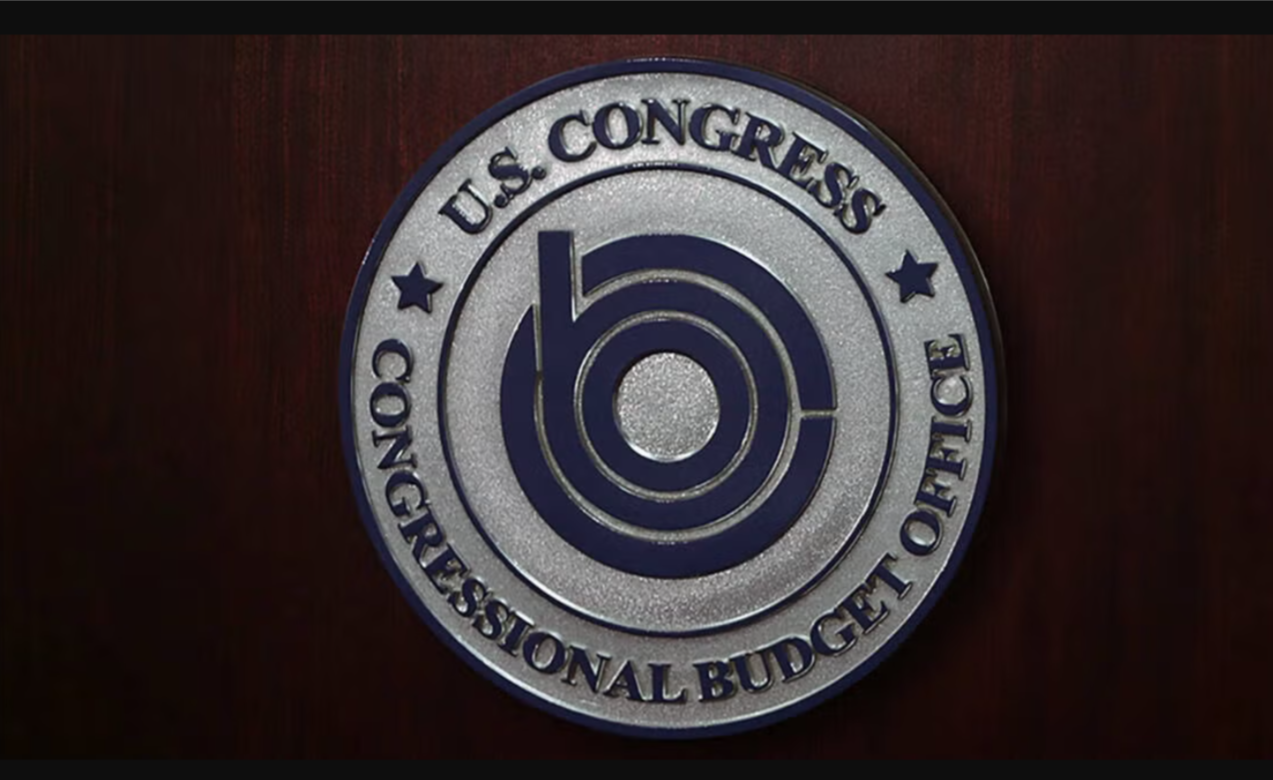(ThyBlackMan.com) Here are some key dates in presidential history, politics and elections that tell much about why the wanton murder of three police officers in Baton Rouge could loom big in 2016. The dates are 1964, 1968, 1980, 1992, 2001, and 2008. In 1964 GOP presidential contender Barry Goldwater ran hard on an unabashed state’s right, anti-civil rights, and a relentless savage of social programs stance. He was crushed by Lyndon Johnson. But he won a victory of another sort. He made conservatism a powerful force in American politics. That transformed the GOP and presidential politics for decades to come. It eventually even pushed the Democratic Party to the right.
In 1968, GOP presidential contender, Richard Nixon, snatched Goldwater’s line, reshaped it into his Southern Strategy, that translated out to say and do as little about civil rights, painted a nightmarish vision of anarchy in the streets from the urban riots and campus upheavals. He spiced this up by cloaking himself firmly in the mantle of the tough guy, law and order candidate. It worked. He not only won, but made the Southern Strategy a staple in the  playbook of subsequent GOP presidential candidates.
playbook of subsequent GOP presidential candidates.
In 1980, GOP presidential candidate Ronald Reagan finger-pointed President Carter for his supposed abysmal failure to free the American hostages in the Iranian takeover of the American embassy. This was a major tipping point for the election and Reagan.
In 1992, Democratic presidential contender Bill Clinton rode the mass public fear and anger over the L.A. riots by outflanking President Bush on the GOP’s formula law and order issue, and promised if elected to put 100,000 more police on the streets. He, not Bush, was seen as the guy who could best handle urban unrest in the White House.
In 2001, the mass 9/11 terror attack instantly rescued George W. Bush from plunging popularity ratings and the public perception of his and his administration as failed, flawed, and bungled. He shaped the image of himself as the president who could best handle any and all present and future terror attacks.
In 2008, terror was no longer the public’s obsession, but a failed, flawed Iraq war, an economy in free fall, and a potential financial collapse. Though Bush was not running. The blame for this fell on the head of the GOP and its presidential candidate John McCain. This was just enough to seal the White House for a first term, junior senator, from Illinois and an African-American.
In 2016, there’s Baton Rouge, and before that the murder of five police officers in Dallas and the Nice terror attack. Taken together, these are crises that stoke anger, fear, insecurity, mania and a heightened even desperate search for the proverbial man on the white horse to reassure that the person in the White House will be hard-nosed on law, order, and security.
Donald Trump will pull out all stops to make sure that when Baton Rouge is mentioned, he will be the only name that many voters jittery and angered over the heinous killing and terror attacks will reflexively think of. He took the first giant step in that direction by pilfering the line from Nixon’s presidential script and branding himself as the “law and order candidate.” There is some evidence that it has some resonance. Polls showed that after the Dallas massacre Donald Trump had inched up on Clinton in the three states that will do much too decide the White House, Ohio, Pennsylvania, and Florida.
Baton Rouge simply doubles down on the possibility of another poll bump up for Donald Trump. That’s not all that’s deeply worrisome. There’s a historic parallel that gives an ominous cast to public sentiment about the always volatile impact of racial politics on an election. The civil rights movement in the mid-1960s firmly staked out the moral high ground for a powerful and irresistible movement for racial justice. It was classic good versus evil. Many white Americans were sickened by the gory news scenes of baton battering racist Southern sheriffs, fire hoses, police dogs, and Klan violence unleashed against peaceful black protesters. Racial segregation was considered by just about anyone and everyone who fancied themselves as decent Americans as immoral and indefensible, and the civil rights leaders were hailed as martyrs and heroes in the fight for justice. The civil rights movement had the sympathy and goodwill of millions of whites, politicians, and business leaders during those years. As America unraveled in the 1960s in the anarchy of urban riots, campus takeovers, and anti-war street battles, public attitudes toward civil rights hardened and it played out in national politics.
The polarization has steadily deepened. The backlash against affirmative action, expanded civil rights protections and voting rights, and the relentless rip of Black Lives Matter and Obama for supposedly creating a climate for the murder of cops is a prime case of that. Trump swims in the climate of the open hostility and contempt of many toward Democrats. He will do even more to stir those waters. All it takes is one or two more Baton Rouge type instances of mayhem and murder in the days before the election to be a game changer that could elect Trump. Heaven forbid that not another presidential election hinges on a disaster.
Written By Earl Ofari Hutchinson
One can find more info about Mr. Hutchinson over at the following site; TheHutchinson ReportNews.
Also feel free to connect with him through twitter; http://twitter.com/earlhutchins
He is also an associate editor of New America Media. His forthcoming book is From King to Obama: Witness to a Turbulent History (Middle Passage Press).

















Leave a Reply